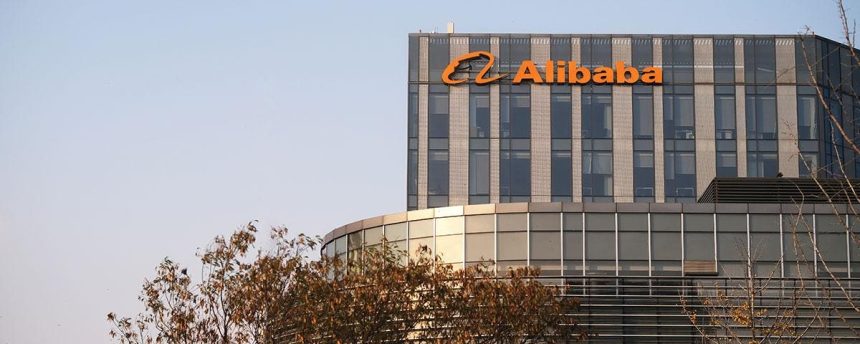Week in Review
- Asian equities were mostly lower this week as China markets underperformed on profit-taking from recent strength and India outperformed.
- Trip.com, NetEase, Kuaishou, and PDD all reported better-than-expected results in their Q1 earnings this week, as PDD’s net income and earnings per share were both double analyst expectations.
- JP Morgan’s China economist and strategist raised the bank’s 2024 GDP target to 5.2% from 4.8%.
- CSRC Vice Chairman Fang Xinghai spoke on encouraging companies to pay more in dividends in an address given in London on Thursday
Key News
Asian equities were a sea of red overnight as investors grapple with higher for longer rates, as the Thai Baht was off -1.31% this week versus the US dollar, the South Korean Won fell -1.04%, the Philippine Peso fell -0.99%, and the Japanese Yen declined -0.88%. Indonesia was closed again for Vesak Day.
Hong Kong and Mainland China’s correction continued, as both markets were led lower by growth stocks, which had been recent outperformers. Today’s drawdown was marked by lower volumes, which some could argue is positive for bulls, poor breadth with just 84 advancing stocks in Hong Kong, and little news.
Yes, China’s military drills around Taiwan are occurring, a not-so-subtle complaint about the new President. But they did not include live fire exercises.
Alibaba’s convertible bond deal, which is like JD.com’s offering, was cited as an excuse to sell, though the rationale for the deal is solid. Remember most of Alibaba’s revenue is in CNY, though its stock is priced in US and Hong Kong dollars. By issuing a US dollar-denominated convertible bond, the company avoids a costly conversion of China E-Commerce revenue in order buy back stock, having to spend 7.24 CNY to buy $1 worth of US stock. The company also faces a stamp tax when moving the money out of China. In addition to the proceeds used to buy back stock and being five-times oversubscribed, the interest rate of Alibaba’s deal is just 0.50% and JD.com’s is 0.25%. The convertible conversion level is a +30% improvement from today’s stock price.
There was no panic from Hong Kong traders, who saw today’s price action as simply profit-taking after a big move on both an absolute and relative basis with one trader calling today’s market action “healthy”.
Hong Kong’s most heavily traded stocks by value were Tencent, which fell -1.26%, Akeso, which fell -22.89% after a lung drug disappointment, Alibaba, which fell -0.64%, Xiaomi, which fell -3.38%, Meituan, which fell -2.68%, and Kuaishou, which fell -4.23%. Mainland investors bought the dip with a moderate +$322 million of net buying via Southbound Stock Connect.
The Mainland market was off on light volumes, though foreign investors were net sellers and there was no sign of the National Team. Like yesterday, there were some underlying positives that clearly had no effect on the market.
After the close, on the nightly news (CCTV 13), it was announced that Premier Li presided over a State Council meeting on “Opinions on Expanding Cross-border E-commerce Exports and Promoting Overseas Warehouse Construction”. The #2 government official in China is focused on expanding e-commerce! Please tell me how that isn’t a positive. The CSRC also articulated rules on large corporate insider sales, i.e. to create less selling. After yesterday’s 30-year Treasury bond launch, the PBOC issued a new 20-year Treasury bond at a 2.49% coupon. China’s asset management industry’s AUM exceeded RMB 30 trillion for the first time.
The Ministry of Commerce’s review of economic data included a report that retail sales of consumer goods increased +2.3% year-over-year (YoY) in April as YTD online retails sales increased +11.5%, accounting for 23.9% of total retail sales.
Reuters noted that Nvidia’s decline in chip sales to China is the result of not being able to sell advanced chips, due to US government restrictions. Nvidia’s lower end chips that are approved cost more than equivalent chips from Huawei. Sounds eerily like Apple’s
AAPL
I noticed that the Chinese aerospace/defense sub-sector was one of the worst performers today. Out of curiosity, I compared a US-listed aerospace/defense ETF against a Mainland China aerospace/defense ETF. Would you believe the US defense ETF has, over the last sixteen years, outperformed the Chinese defense ETF by +136%? +118% versus -17.92%. Yes, there are tons of holes you can punch in this, as I admittedly did zero work in researching the two ETFs, their underlying holdings, etc. At the same time, it is a fairly remarkable disparity. I’ll put the chart up on X/Twitter @ahern_brendan
In the meantime, can someone explain the math behind the below?
- Nvidia revenue +262% to $26B; adjusted net income $15B, P/E 60, market cap $2.53 Trillion
- Pinduoduo revenue +120% to $12B; adjusted net income $4.26B, P/E 20, market cap $215 Billion
The Hang Seng and Hang Seng Tech indexes fell -1.38% and -2.48%, respectively, on volume that decreased -2.48% from yesterday, which is 125% of the 1-year average. 84 stocks advanced while 406 declined. Main Board short turnover declined -4.4% from yesterday, which is 91% of the 1-year average as 13% of turnover was short turnover (remember Hong Kong short turnover includes ETF short volume, which is driven by market makers’ ETF hedging). All factors were negative, as large caps “outperformed” (i.e. fell less than small caps with both value and growth falling the nearly the same amount. Utilities was the only positive sector +0.52% while healthcare -4.19%, real estate -3.83% and tech -3.02%. Top sub-sectors were energy and utilities while real estate, pharmaceuticals and semis. Southbound Stock Connect voumes were high as mainland investors bought $322mm of HK stocks and ETFs with Bank of China, CNOOC and CCB small net buys while Meituan, Tencent and Kuaishou were small net sells.
Shanghai, Shenzhen, and the STAR Board fell -0.88%, -1.1% and -2.05% on volume -9.93% from yesterday which is 89% of the 1-year average. 1,707 stocks advanced while 3,168 declined. Low volatility was the only factor not negative with a flat/0% return while value and large caps “outperformed”/fell less than growth and small caps. Utilities was the only positive factor +1.52% while real estate -3.44%, tech -2.56% and discretionary -1.23%. Top sub-sectors were the power industry, motorcycle and construction machinery while computer hardware, real estate and aerospace/military were the worst. Northbound Stock Connect volumes were moderate as foreign investors sold -$563mm of mainland stocks Cypc a small net buy, LXJM and Foxconn moderate net buys while Kweichow Moutai was a moderate net sell, Wuliangye and BYD moderate/small net sells. CNY and the Asia dollar index were off small versus the US dollar. Treasury bond prices fell. Copper was off small while steel posted a small gain.
Happy birthday to my daughter Addie!
Upcoming Webinar
Join us on May 29th, 2024 at 9 pm EDT for:
China Rising? Unveiling The Potential Drivers of A Sustained Equity Bull Market
Please click here to register
Join us on June 11th, 2024 at 10 am EDT for:
Trump or Biden: Two Former US Ambassadors Discuss The Election & Its Likely Impact on US-China Relations
Please click here to register
New Content
Read our latest article:
Looking For High Yield? KHYB Portfolio Manager Discusses Opportunities in Asia’s High Yield Bond Market
Please click here to read
Last Night’s Performance
Last Night’s Exchange Rates, Prices, & Yields
- CNY per USD 7.24 versus 7.24 yesterday
- CNY per EUR 7.85 versus 7.83 yesterday
- Yield on 1-Day Government Bond 1.34% versus 1.34% yesterday
- Yield on 10-Year Government Bond 2.31% versus 2.31% yesterday
- Yield on 10-Year China Development Bank Bond 2.41% versus 2.41% yesterday
- Copper Price -0.11%
- Steel Price +0.13%
Read the full article here














